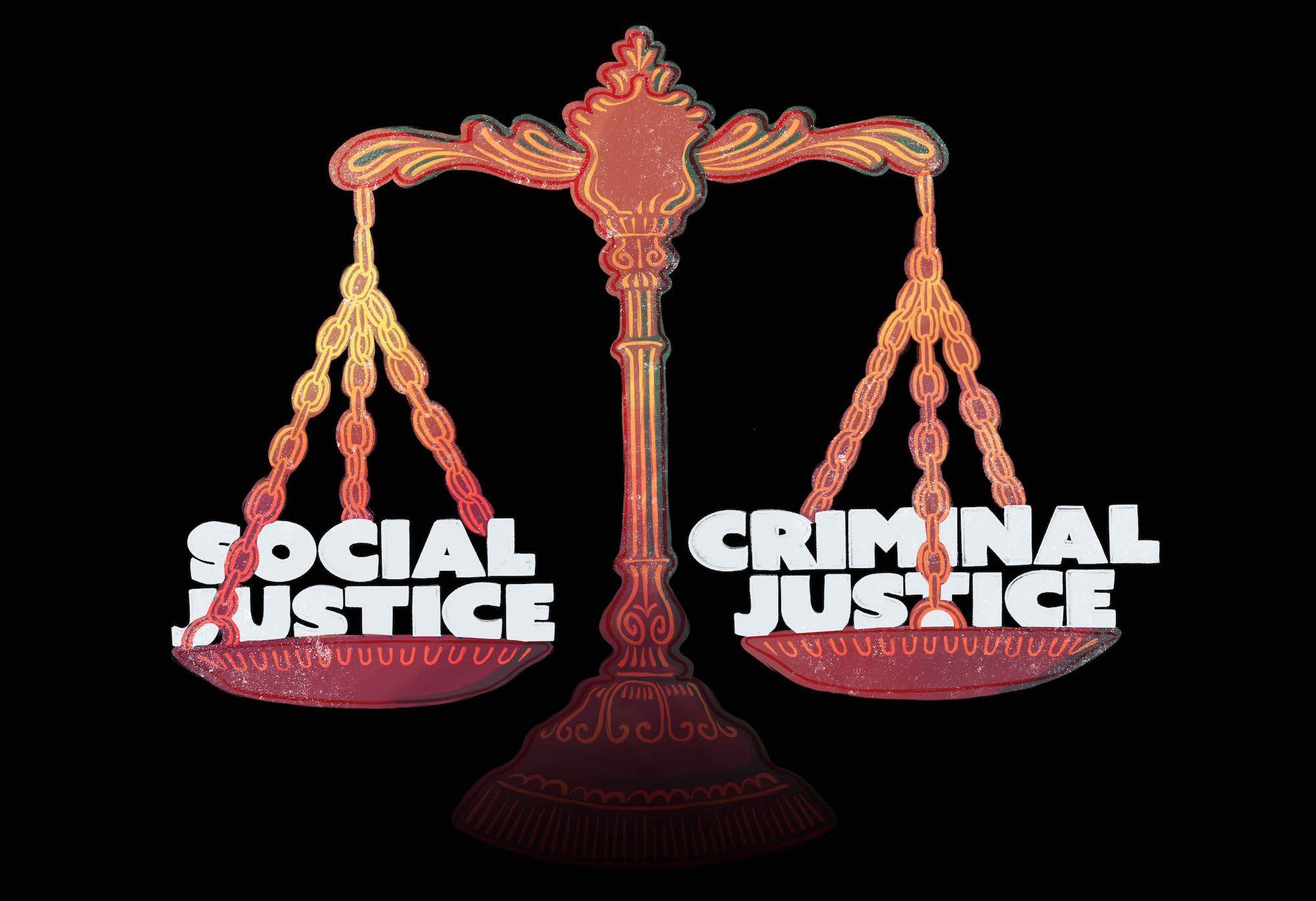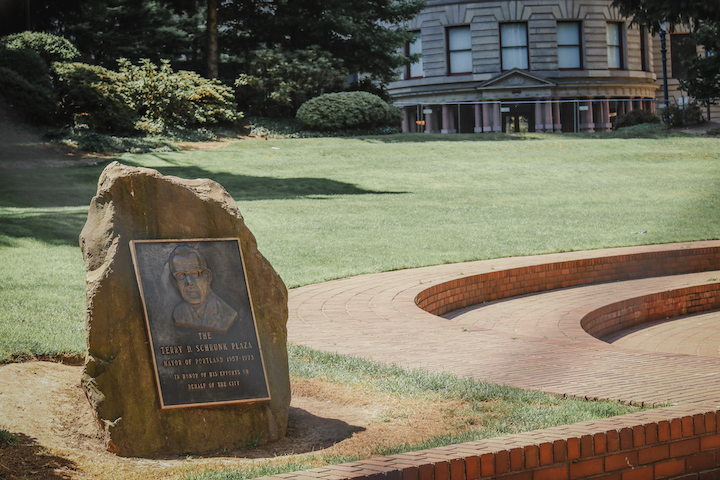In response to national protests condemning police brutality and demanding criminal justice reform, Portland State’s Criminology and Criminal Justice (CCJ) department intends to implement a more holistic approach to criminal justice studies.
“We’ll be exploring the addition of a track or specialization, perhaps a certificate, on the intersection of social justice and criminal justice,” stated Dr. Brian Renauer, professor and chair of the CCJ department. The new specialization will use current CCJ courses as well as courses from other departments with a focus on social justice issues.
“Our goal is to make a concerted effort to highlight our existing social justice course offerings and efforts and enhance new offerings around social justice perspectives on criminal justice for students to engage with,” Renauer stated.
However, “This idea is in the preliminary thinking stage, as most departments are shut down for the summer for this type of curriculum planning,” according to Renauer.
Criminology and criminal justice is one of PSU’s most popular majors. “Part of the reason the degree is so popular is there are so many career options,” said Rhiannon Whitlatch, a PSU senior majoring in CCJ. The department’s website lists more than 50 organizations in which program graduates can find jobs, from the FBI to the United States Fish and Wildlife Service.
“There’s always been a mindset [in the CCJ department] of needing new blood going into the system to help lead these reform efforts,” Renauer said. “At the same time, I’m concerned because of the systemic racism within our society…that will scare away good people—the good people we want and need to be [working in] the criminal justice system at this time and leading these reforms.”
Whitlatch knew she wanted to become a detective when she was in middle school, after she read Sherlock Holmes for the first time. “I want to help people. I want to bring justice and closure to victims’ families if I can,” Whitlatch said. “And as flawed as the criminal justice system is, it’s still the most appealing direction for me.”
She says the system, especially law enforcement, doesn’t work equitably.
“The system, as is, is set up to fail,” Whitlatch said. One reason for this, according to Whitlatch, is decision-makers within the criminal justice system don’t listen to, or aren’t aware of, the research being done. “If we want change, we must listen to the people doing the research. Reading the research is always a good idea.”
One example of a policy implemented without supporting research is Scared Straight, a program for juveniles who have committed, or who are deemed to be at risk of committing, a crime. These juveniles visit adult prisons, where prisoners attempt to scare them in hopes of preventing them from ending up in an adult prison themselves.
“It turned out that, compared to the control group, the group of juveniles that went through Scared Straight actually had higher rates of recidivism,” Whitlatch said. “Things like this get put into place, because they make sense, right? But common-sense solutions actually make things worse. And [the people designing and implementing these programs] would have known that if they’d done the research first.”
Like Whitlatch, Thomas Yates, a graduate student in the CCJ program, called attention to the issue that policy and decision-makers aren’t using research when creating and implementing new programs.
“There’s mountains of data that have been compiled by social scientists,” Yates said. “The justice system is broken, and for decades policies really weren’t based on any empiricism.”
Yates originally planned to major in political science, until he took a CCJ class for elective credit.
“The class was Perspectives on Terrorism, and it blew my mind. One of the textbooks was written by a former FBI undercover agent who also has a [Juris Doctor degree]. His specialty was infiltrating white supremacist organizations. The course was so cool. It changed my entire trajectory.”
Yates plans to take the LSAT this summer in hopes of attending law school and later working in a district attorney’s office. He thought the department’s social justice track was an exciting idea.
“There will be classes taught by sociologists, Black studies professors, gender and women’s Studies professors and economists,” Yates said.
Since the new specialization won’t be available right away, Yates offered advice to students who are inspired by the recent protests and Black Lives Matter movement.
“Look through the course catalog. Several criminology classes are tied to university studies.”
Based on his own experiences, Yates said he “wouldn’t be surprised if some people change their majors.”
“I’m excited about drawing in some new people who want to lead social justice reform from within,” Renauer said. “It’s an exciting time to be at the forefront of social justice reform for the criminal justice system.”
But just as it will take time for the CCJ department to create and implement a new social justice specialization, change within the criminal justice system won’t happen overnight.
“I do think these [recent protests] are going to light some fires around reform and change and maybe speed up some things and create some more positive outcomes for communities,” Renauer said. “I want students to be excited to be a part of these reforms. The system isn’t going to go away. It’s going to need people to work in it.”






